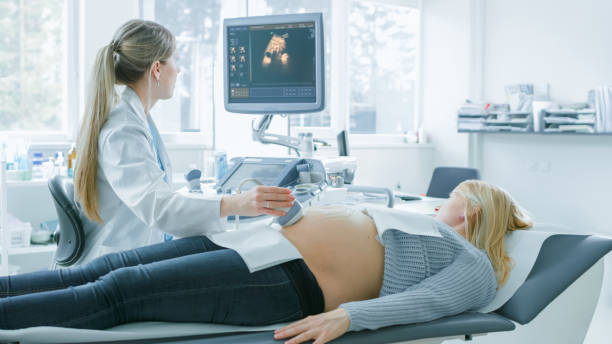If you have a heart pacemaker, are pregnant, have a clotting disorder, kidney disease, or diabetes, are sceptical about surgery or anaesthetic procedures, or suffer from claustrophobia; then ultrasonic cavitation may not be for you. Ultrasonic cavitation utilises sound waves to break down fat cells beneath the skin. The technique is best suited for those whose weight is stable and who do not want surgery or liposuction treatment. Ultrasonic cavitation does not work on people who have had previous abdominal surgery and persons with mobility problems should also avoid this procedure for safety reasons.
Who can’t have Ultrasonic Cavitation?
Women who are pregnant, have a clotting disorder, kidney disease, or diabetes; are sceptical about surgery or anaesthetic procedures; or suffer from claustrophobia shouldn’t have ultrasonic cavitation. Also, it’s not good for people whose weight is unstable and doesn’t want to get surgery.
Ultrasonic Cavitation is used to treat the following conditions:
Low back pain is a general term that describes pain anywhere in the lower part of the back including pain in the legs and buttocks. Low Back Pain is also associated with “disorders” involving other areas of the body such as low back disorders which include arthritis and disk problems. Low back pain is one of the most common reasons people visit the doctor. Typically, the pain will begin gradually and then worsen over time. It is important to identify low back pain so it can be addressed early to prevent long-term problems and limit disability.
What are the risks of Ultrasonic Cavitation?
Ultrasonic cavitation is a safe procedure that has been used for many years. There have been very few cases of patient injury in which ultrasonic cavitation caused permanent damage to the body. The risks and benefits of ultrasonic cavitation are considered very similar to liposuction and other surgical procedures. This means that there are possible risks associated with any type of surgery, but the risk is not higher than you would get from other surgeries or invasive procedures.
Why should I avoid Ultrasonic Cavitation?
If you have obesity and have significant lower back pain, then consider some alternatives such as liposuction. If you have a heart pacemaker, are pregnant, have a clotting disorder, kidney disease, or diabetes, are sceptical about surgery or anaesthetic procedures, or suffer from claustrophobia; then ultrasonic cavitation may not be for you. Ultrasound therapy is best suited for those whose weight is stable and who do not want surgery or liposuction treatment. Ultrasonic cavitation does not work on people who have had previous abdominal surgery and persons with mobility problems should also avoid this procedure for safety reasons.
Are there any side effects?
Discuss all medications you are currently taking with your physician prior to undergoing ultrasonic cavitation treatment. Ultrasonic cavitation is not a procedure that requires general anaesthesia. Most people experience a little discomfort during the treatment.
How long does it take?
Ultrasonic cavitation takes only 15 – 20 minutes to complete and you may need two visits for the full procedure. The procedure itself is extremely short and painless, but you will be asked to sit on a soft surface such as a couch or bed for about 10 minutes after the treatment. You will also be asked to keep your legs elevated above your heart for 24 hours after the procedure and to avoid heavy lifting for 3 days. Please expect an average of a 45-minute break in between treatments of ultrasonic cavitation until all fat cells are removed from the body.
Is Ultrasonic Cavitation painful?
Ultrasonic cavitation is a very short procedure that is done on an outpatient basis. There is no pain associated with ultrasonic cavitation. Prior to treatment you will be asked to lie down on a reclining chair for about 10 minutes and then you will be positioned on the operating table for about 2-3 minutes.
Can I have Ultrasonic Cavitation during Breastfeeding?
Ultrasonic cavitation is safe for breastfeeding mothers. However, there are no studies that provide any statistical data about the effect of ultrasonic cavitation on the nursing infant. The most important information would be whether your child’s weight gain and feeding pattern were normal after treatment. If you have any concerns about ultrasonic cavitation while breastfeeding please include that in your discussions with your doctor prior to having surgery performed on you.



